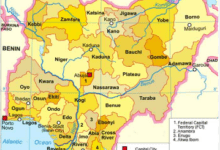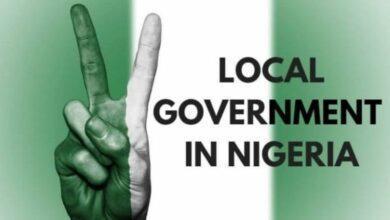Functions of Nigeria Customs Service
The Nigeria Customs Service is an independent agency, reputed to be one of the highest in terms of revenue generation in the country, in fact, the second in the list of revenue generator in Nigeria, apart from crude oil.

👉 Relocate to Canada Today!
Live, Study and Work in Canada. No Payment is Required! Hurry Now click here to Apply >> Immigrate to CanadaWhat is The Nigeria Customs Service?
The Nigeria Customs Service (NCS) is a government’s agency that works independently but under the country’s Ministry of Finance, which directly supervised the agency’s responsibilities and duties.
The oversight functions of the Nigerian Customs Service include but not limited to the collection of customs and excise revenue and anti-smuggling campaign.
Coming into existence in the year 1891, the Nigeria Customs Service duties have been the collection of revenue, and accounting for the revenue collected, as well as flighting against smuggling activities.
Of late other function of the agency has been in the area international trade. The Nigeria Customs Service is also saddled with the responsibility of facilitating trade. This has become one of vital role of the Nigeria Customs Service.
As a fundamental government policy, the Customs is seen as playing critical role in the supply of goods and services within the international hub. In subsequent, given some issues faced by the Nigeria Customs Service in the area of providing measures that would ensure speedy delivery of services.
Another is the aspect of maintaining systematic intervention in controlling crimes associated with international trade, such as money laundering, menace of violation of intellectual property rights, including dumping of toxic waste and hazardous substances in the country.
Therefore, given the roles and the functions of the Nigeria Customs service, it becomes important and necessary, that Nigeria Customs Service whose role involes improvement of the Nigeria’s trade and its international environment, as well as flight and prevent threats.
It is expected of the Nigeria Customs Service to provide legitimate services in such a maner that will help maximize the efficiency of trade and promote trade competitiveness within Nigeria’s borders with prompt processes of businesses.
👉 Relocate to Canada Today!
Live, Study and Work in Canada. No Payment is Required! Hurry Now click here to Apply >> Immigrate to CanadaRead Also: How to Join Nigerian Customs Service
Functions of the Nigeria Customs Service
Therefore, it has contributed immensely to the growth and development of the Nigeria’s economy through its functions. In this article, I will be explaining few of these functions.
1. Collection of Customs and Excise Duties
The Nigeria Customs Service has a good number functions by rendering services to the Nigerian government. One of such functions is the collection of customs and excise duties.
Since the Nigerian Customs Service is saddled with this responsibility, it has over the years employed strategies that has enabled it to increase generation of revenue within the Nigerian economy through its duties of collecting customs and excise duties, including other such charges on international trade.
And this efforts has made for availability of funds in the Nigerian government’s pause for expenditure thus bring about positive changes as well as positive benefits to the country’s economy, and has been successful through revenue generation drives.
Read Also: 8 Functions of the Nigerian Foreign Affairs Ministry
2. Combat Smuggling Activities in Nigeria
The Nigerian Customs Service is also saddled with the responsibility of combating smuggling practices in Nigeria. It anti-smuggling campaign has effective, where the Nigerian Customs Services battled scrupulous individuals who are found of smuggling goods into the country without the approval of the Nigerian government.
Efforts are made in different circumstances to ensure that smuggling is tackled in all fronts in the country. The Nigerian Customs Service does this by positioning its men in strategic places and their duties are to intercept products smuggled into the country illegally smugglers through all the unapproved roads used by them.
Therefore, It is under powers of the Nigerian Customs Service to seize all goods irrespective their kinds, so far such goods are considered prohibited goods.
By curbing smuggling activities menace in Nigeria, the Nigerian Customs Service has been able to some extent reduced smuggling activities in the country, and this has saved the Nigerian government from some losses of revenue through smugglers’ activities.
Besides the seizures of these prohibited goods, the Nigerian Customs Service will also gets these suspects arrested, and prosecuted them in the court of law.
Read Also: 9 Functions of Nigerian Airspace Management Agency (Nama)
3. Trade Facilitation
Another function of the Nigerian Customs Service is to bring about the improvement of the trade environment, as well as ensuring that there is reduction is transactions cost between or among businesses and government.
Through trade facilitation responsibility of the Nigerian Customs Service, the country attract foreign direct investment. The Nigeria’s borders are made to be operative by the Nigerian Customs Service through unperturbed flow of goods, and services and investment funds through the Nigeria’s borders.
Trade facilitation is said to help increase the Nigerian customs services’ productivity, it has also improves it responsibility at the border while collecting taxes.
Be that as it may, multilateral agreement on trade facilitationis is expected to enhance movement of goods from across borders which would invariably bring about transparency and accountability in doing business in Nigeria.
This mean a boost to the country’s gross domestic product, where employment would be stimulated.
Read Also: 10 Functions of Nigeria Bank of Industry
CONCLUSIONS
Nigeria is reputed to be the eighth biggest crude oil exporter out of all the countries that export crude oil and gas, and because the Nigerian Customs Service, the virtue of its functions has served the Nigerian government some losses from revenue generation, then it is also important and necessary that the Nigerian Customs Service be employed to function in the area of of oil and gas export activities.
Findings have however, revealed that, the Nigerian government has been and is still losing so much of funds that would have been used to grow and develop the Nigerian economy, and these are that are supposed to be collected by the Nigerian Customs Service through the processes involving oil and gas exportation.





